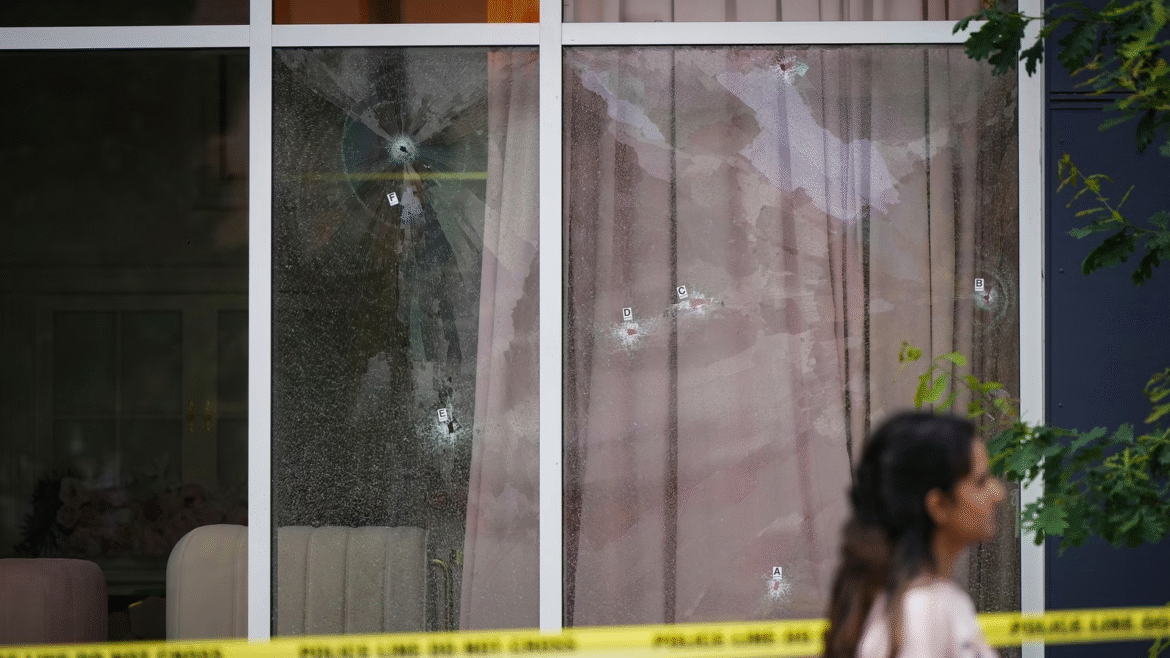AI Generated Summary
- Kap’s Cafe is owned by a very famous Indian comedian, Kapil Sharma, and he made a joke that a member of the Babbar Khalsa International (listed Khalistani terrorist org in 🇨🇦) didn’t… pic.
- In what has become a grim reminder of the dangers of unchecked extremism, comedian Kapil Sharma’s newly launched café in Canada fell victim to a targeted attack linked to Khalistani separatist groups.
- It is an attack on pluralism, on peaceful enterprise, and on the very spirit of free and open democracies.
In what has become a grim reminder of the dangers of unchecked extremism, comedian Kapil Sharma’s newly launched café in Canada fell victim to a targeted attack linked to Khalistani separatist groups. The incident underscores a troubling trend: countries that offer safe haven and unrestrained platforms to radical voices under the banner of free speech are now witnessing violence born out of the ideologies they once chose to ignore.
Kap’s Cafe, a cozy, floral-themed café in British Columbia, had just celebrated its soft opening when shots rang out late Sunday night. While no injuries were reported, the message was unmistakable. The attack was later claimed by Harjit Singh Laddi, a known operative of Babbar Khalsa International (BKI), a group banned in India for its terrorist activities. Authorities are treating it as a targeted act of intimidation, and India’s National Investigation Agency has announced a ₹10 lakh reward for information on Laddi’s whereabouts.
Shortly after the attack, Gurpatwant Singh Pannun, the self-styled leader of the outlawed Sikhs for Justice (SFJ), doubled down with chilling threats. In a video message, he accused Sharma of promoting Hindutva “under the guise of business” and warned that Canada will not become “a playground” for such ideologies. He even questioned whether the café was “just a comedy venue or part of a larger conspiracy.”
These are not mere words from a fringe voice—they are part of an increasingly aggressive campaign by Khalistani extremists to intimidate Indian-origin figures abroad. Their targets are often high-profile individuals who represent unity, national identity, or cultural pride. Kapil Sharma, with his global fan base and clean comedic brand, appears to have become the latest scapegoat in this ideological warfare.
I’m on the ground in Surrey BC at Kap’s Cafe to see the destruction of last night’s shooting.
— Daniel Bordman (@DanielBordmanOG) July 11, 2025
Kap’s Cafe is owned by a very famous Indian comedian, Kapil Sharma, and he made a joke that a member of the Babbar Khalsa International (listed Khalistani terrorist org in 🇨🇦) didn’t… pic.twitter.com/acEggPcADH
Despite the attack, Kap’s Cafe has vowed to stay open. In a heartfelt Instagram post, the café stated: “We opened Kap’s Caffe with hopes of bringing warmth, community, and joy through delicious coffee and friendly conversation. To have violence intersect with that dream is heartbreaking. We are processing this shock, but we are not giving up.”
While the resilience shown by Sharma and his team is commendable, this episode is a stark cautionary tale. Nations that allow radical groups to propagate hate under the cover of civil liberties risk importing the very violence they claim to stand against. The idea of freedom of expression should never be twisted into a license for inciting terror, threatening civilians, or undermining democratic societies.
Canada, in particular, finds itself at a crossroads. Long viewed as a haven for diverse voices and immigrant communities, it must now grapple with how to differentiate between dissent and destabilization. The line between legitimate activism and extremist provocation is becoming dangerously blurred. When known operatives of designated terrorist organizations freely release videos claiming attacks and threatening public figures, it begs the question: how far must things go before decisive action is taken?
The attack on Kapil Sharma’s café is not just about one business, or one man. It is a reflection of a growing global challenge: the empowerment of extremists under the false banner of free expression. When hateful ideologies are given room to flourish, they do not just voice opinions—they fire bullets, spread fear, and fracture the fabric of civil society.
This is not only an attack on a café. It is an attack on pluralism, on peaceful enterprise, and on the very spirit of free and open democracies. And if not checked, it won’t be the last.




